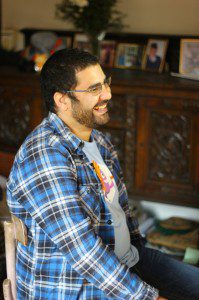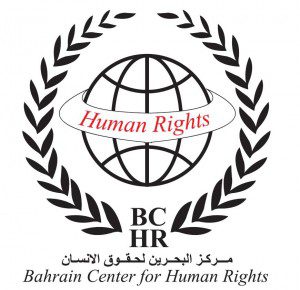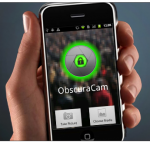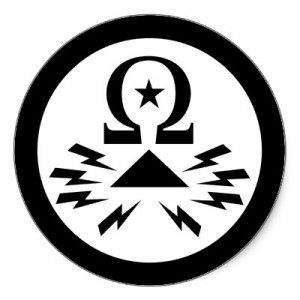Index announces shortlist for the Freedom of Expression Awards 2012
Index on Censorship is proud to present the shortlist for the Freedom of Expression awards 2012. Check out the full list of nominees
Index on Censorship is proud to present the shortlist for the Freedom of Expression awards 2012. Check out the full list of nominees
A police officer who participated in the initial investigation into News of the World phone hacking today strongly denied that the Metropolitan Police had tried to minimise the impact of the scandal during the initial investigation in 2006.
Appearing at the Leveson Inquiry today, Phillip Williams, Detective Chief Superintendent of the Metropolitan Police Service, said that the force had been determined to gain convictions in the original prosecution of investigator Glenn Mulcaire and News of the World royal correspondent Clive Goodman, who were jailed in 2007 for phone hacking. Saying he could have stopped the investigation at any point, Williams stressed he was determined that there should be publicity surrounding the case. Williams agreed when Jay posited that News International had been unhelpful and obstructive in the investigation.
Quizzed on why the Metropolitan Police had not informed all 418 of the people identified by Mulcaire as hacking targets, Williams said only those who he felt definitely had been hacked had been informed. This included Rebekah Brooks (née Wade), then editor of the Sun and later News of the World editor.
Williams said he had not called in a broad range News of the World journalists because he believed this tactic would merely lead to a string of “no-comment” interviews. When quizzed by Robert Jay QC as to why he had not pursued the person mentioned in the infamous “For Neville” email (chief reporter Neville Thurlbeck), Williams reiterated that he would not interview someone merely on the basis of a first name.
Asked if he was angered by News International’s insistence that Goodman had been a lone rogue reporter, Williams said he had been “realistic”, understanding the company’s efforts to protect its reputation.
Follow Index on Censorship’s coverage of the Leveson Inquiry on Twitter – @IndexLeveson
 Alaa Abd El Fattah is at the forefront of protests against Egypt’s current military rule. Over the last 12 months, the Supreme Council of the Armed Forces (SCAF) has tried to silence dissent, crushing protests, restricting the media and questioning and imprisoning activists who criticise its actions.
Alaa Abd El Fattah is at the forefront of protests against Egypt’s current military rule. Over the last 12 months, the Supreme Council of the Armed Forces (SCAF) has tried to silence dissent, crushing protests, restricting the media and questioning and imprisoning activists who criticise its actions.
Abd El Fattah is one of an estimated 12,000 civilians tried by military courts since the fall of Mubarak. The blogger and activist was arrested on suspicion of inciting violence against the military during clashes between the security forces and Coptic Christians. He was jailed on 31 October 2011 after he refused to recognise the legitimacy of the military interrogators in overseeing civilian trials. He was released pending investigation on 25 December, but continues to speak out against SCAF.
 The Bahrain Centre for Human Rights (BCHR) has played a crucial role in documenting human rights violations, political repression and torture in the Gulf kingdom. Despite efforts to silence and discredit it, the BCHR has kept international attention on the brutal government crackdown that began last February. It has prevented the Bahrain government from whitewashing its international image, and at times when news media were severely restricted and foreign journalists barred, it acted as a crucial news source.
The Bahrain Centre for Human Rights (BCHR) has played a crucial role in documenting human rights violations, political repression and torture in the Gulf kingdom. Despite efforts to silence and discredit it, the BCHR has kept international attention on the brutal government crackdown that began last February. It has prevented the Bahrain government from whitewashing its international image, and at times when news media were severely restricted and foreign journalists barred, it acted as a crucial news source.
Former BCHR president Abdulhady al Khawaja is one of eight activists serving life sentences for peacefully protesting at the Pearl Roundabout which has since been demolished. Like many other activists he claims he has been tortured in prison. BCHR employees regularly experience threats, violence and harassment. In January 2012, BCHR president Nabeel Rajab was severely beaten by security forces while peacefully protesting.
 Anthony Lester is a British barrister and Liberal Democrat peer whose work in the field of human rights has transformed the legal landscape. His support for the libel reform campaign has led to one of the greatest advances for free speech in recent years in the UK, potentially transforming the most infamous and enduring chill on freedom of expression in the country. Following the introduction of Anthony Lester’s private member’s defamation bill in May 2010, the government then used it as the basis for its own bill a year later. If it becomes law this year, it will mark the end of London’s notorious reputation as “a town named sue”, the libel capital of the world, and fulfil Anthony Lester’s personal aim of providing a “catalyst for reform” in an historic moment for free speech in the UK.
Anthony Lester is a British barrister and Liberal Democrat peer whose work in the field of human rights has transformed the legal landscape. His support for the libel reform campaign has led to one of the greatest advances for free speech in recent years in the UK, potentially transforming the most infamous and enduring chill on freedom of expression in the country. Following the introduction of Anthony Lester’s private member’s defamation bill in May 2010, the government then used it as the basis for its own bill a year later. If it becomes law this year, it will mark the end of London’s notorious reputation as “a town named sue”, the libel capital of the world, and fulfil Anthony Lester’s personal aim of providing a “catalyst for reform” in an historic moment for free speech in the UK.

Kubatana is an NGO based in Harare that uses a variety of new and traditional media to encourage ordinary Zimbabweans to be informed, inspired and active about civic and human rights issues. As an organisation, it continuously seeks innovative fixes to the challenges of sharing independent information in Zimbabwe’s restrictive media environment. Freedom Fone is one of Kubatana’s solutions. An open-source software, Freedom Fone helps organisations create interactive voice response (IVR) menus to enable them to share pre-recorded audio information in any language via mobile phones and landlines with their members or the general public. The software is aimed at organisations or individuals wishing to set up interactive information services for users where the free flow of information may be denied for economic, political, technological or other reasons. Freedom Fone is one of the many ways Kubatana reaches across the digital divide to inform and inspire the vast majority of Zimbabweans who do not have regular or affordable internet access.
 ObscuraCam is a free smartphone application that uses facial recognition to blur individual faces automatically. Developed by WITNESS and the Guardian Project, it enables users to protect their personal security, privacy and anonymity. In 2011 and 2012, uprisings throughout the Middle East have shown the power and danger of mobile video footage. ObscuraCam helps protect activists who fear reprisals but want to safely capture evidence of state brutality. Launched in June 2011 and based in the USA, ObscuraCam is the only facial blurring or masking application that has responded to the concerns of human rights groups, citizen activists and journalists. In addition to obscuring faces, the application removes identifying data such as GPS location data and the phone make and model.
ObscuraCam is a free smartphone application that uses facial recognition to blur individual faces automatically. Developed by WITNESS and the Guardian Project, it enables users to protect their personal security, privacy and anonymity. In 2011 and 2012, uprisings throughout the Middle East have shown the power and danger of mobile video footage. ObscuraCam helps protect activists who fear reprisals but want to safely capture evidence of state brutality. Launched in June 2011 and based in the USA, ObscuraCam is the only facial blurring or masking application that has responded to the concerns of human rights groups, citizen activists and journalists. In addition to obscuring faces, the application removes identifying data such as GPS location data and the phone make and model.
Visualizing.org was created to help make data visualisation more accessible to the general public. It calls itself “a community of creative people making sense of complex issues through data and design… and a shared space and free resource to help you achieve this goal”.Data analysts and graphic designers have set themselves the challenge of sharing a constantly proliferating body of public data in an accessible form. Raw data on its own might as well be censored; visualisation opens the door to open information that otherwise would be left languishing on hard disks or, if downloaded, unintelligible to the average citizen. The project offers a place to showcase work, discover remarkable visualisations and visually explore some of today’s most pressing global issues. Created by GE and Seed Media Group, Visualizing.org promotes information literacy. The portal has had a remarkable year.
 Telecomix is the collective name for a decentralised group of internet activists operating in Europe. Their focus is to expose threats to freedom of speech online. During one operation, Telecomix activists published a huge package of data which proved that the Syrian government was carrying out mass surveillance of thousands of its citizens’ internet usage. Telecomix’s revelation that the technology used was supplied by US firm Blue Coat Systems has prompted serious investigations into the involvement of western technology firms in helping repressive regimes spy on their people. In mid-August 2011, Telecomix’s dispersed group of hackers came together to target Syria’s internet. Those attempting to access the internet though their normal browsers were confronted with a blank page bearing a warning: “This is a deliberate, temporary internet breakdown. Please read carefully and spread the following message. Your internet activity is monitored.” Following this, a page flashed up describing how to take precautions to encrypt usage.
Telecomix is the collective name for a decentralised group of internet activists operating in Europe. Their focus is to expose threats to freedom of speech online. During one operation, Telecomix activists published a huge package of data which proved that the Syrian government was carrying out mass surveillance of thousands of its citizens’ internet usage. Telecomix’s revelation that the technology used was supplied by US firm Blue Coat Systems has prompted serious investigations into the involvement of western technology firms in helping repressive regimes spy on their people. In mid-August 2011, Telecomix’s dispersed group of hackers came together to target Syria’s internet. Those attempting to access the internet though their normal browsers were confronted with a blank page bearing a warning: “This is a deliberate, temporary internet breakdown. Please read carefully and spread the following message. Your internet activity is monitored.” Following this, a page flashed up describing how to take precautions to encrypt usage.